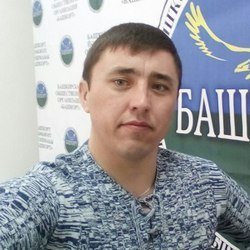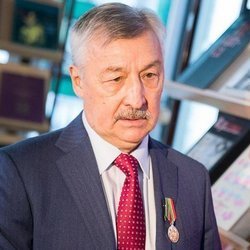Who better off with 'Russian article' in Constitution?
Experts: the status of the Russian language as “the language of the state-forming people” can lead to unpredictable consequences
It is proposed to enshrine in the Russian Constitution the Russian language as “the language of the state-forming people”. The amendment has been made in the new version of the basic law and will be considered in the State Duma in two readings in a week, along with other amendments. In a month and a half, Russian citizens will vote for or against these changes. If the authorities of Tatarstan met this initiative with restraint, then the national public reacted negatively. At the same time, experts warn of the dangers that threaten if this rule is adopted.
When State Duma returns a verdict
In the new Constitution of Russia, namely in the article 68, the Russian language can get the status of “the language of the state-forming people”. Russian President Vladimir Putin supported this proposal at the meeting of the working group on changing the basic law of the state. The text of the amendments includes provisions on the Russian people as state-forming.
“The state language of the Russian Federation throughout its territory is Russian as the language of the state-forming people. The Russian people is [considered] as the state-forming nation that is part of the multinational union of equal peoples of the Russian Federation," said State Duma Speaker Vyacheslav Volodin, who read out the text of the amendments.
The text of the presidential amendments states that the state protects the cultural identity of all peoples and ethnic communities in Russia, as well as guarantees the preservation of ethno-cultural and linguistic diversity.
The lower house of the parliament will consider the presidential draft bill on amendments to the Constitution in the second reading on March 10, and in the third — on March 11. The national vote will be held on April 22.
“The amendments will infringe on other peoples and their languages”
Such amendments (like many others) have caused heated debates in society. Russian nationalists generally welcome changes concerning the language and the people. Moreover, a special website was created for “Russians — to the Constitution of Russia”, where it is proposed to sign off on the corresponding petition. At the time of preparing the material, 5,500 people have signed the letter.
At the same time, Tatar and Bashkir social activists object to these proposals, considering them at least harmful to the multinational society and the state as a whole. In this regard, some recall the story with the introduction of the voluntary principle of learning native ethnic languages, after which many teachers of the Tatar and Bashkir languages had to urgently retrain for new specialties.

“These amendments will infringe on other peoples (Bashkirs, Tatars and others) and their languages," he emphasizes. “We have a multinational federation, we have ethnic republics. And this policy with regard to national regions has been going on for a long time — since the time when they began to change the positions of presidents of republics to heads.
Some Muslim figures also have not supported this amendment. For example, Chairman of the Muslim Spiritual Board of Tatarstan Kamil Samigullin did not find positive prospects in the adoption of the new concept of “the state-forming people”, especially in relation to Russians. Later, Volodin's Adviser Anastasia Kashevarova criticized the mufti's words, believing that he had not read the text of the amendments. Yegor Kholmogorov, a Russian nationalist and publicist, also reacted quite sharply to the statement of the chairman of the Muslim Spiritual Board, using unprintable expressions in his regard. At the same time, Kamil khazrat positively assessed another proposed amendment — the mention of God in the basic law.
Rafael Khakimov, the director of the Institute of History named after Sh. Mardzhani, believes that any changes to the Constitution are useless, since, in his opinion, it is already ignored.

“Attempts to play along with Russian-nationalist forces”
Ethnopolitologist Ildar Gabdrafikov believes that such provisions should not be included in the basic law since they will only play into the hands of certain forces.
“All the peoples of Russia, especially those who have their own ethnic-territorial formations, are co-founders of the Russian Federation," the expert says. “These amendments are the attempts to play along with Russian-nationalist forces, to encourage the Russians, to raise a certain patriotic spirit. There is no need in such wording about the Russian language, Russian people.
In his opinion, such amendment threatens to have adverse consequences. First, it can cause a retaliatory growth of anti-Russian sentiments within the country. Second, other peoples will feel uncomfortable, because, unlike the Russians, they will not be mentioned in the main document.

However, our interlocutor does not link these amendments to the upcoming census, as some activists suggest.
“It is unnecessary to specify a certain people as state-forming one. We already see the dominance of the Russian language, culture, and history. And there is no need to specifically prescribe all this in the Constitution," Ildar Gabdrafikov concluded.
Kazan Kremlin: “Putin emphasized the importance of ethnic languages”
It should be noted that Chairman of the State Council of Tatarstan Farid Mukhametshin, who is part of the working group, at a meeting with Putin expressed fears that “there can be infringement” of other languages and it may cause bans on “tugan tel” ('native language' in translation from Tatar — editor's note)? According to him, this issue is raised by teachers of ethnic languages in the republics.
“It is necessary to specify more clearly whether it will be possible to learn the language of the father, mother, grandfathers, great-grandfathers, and save it in the end?" the speaker of the Tatarstan parliament addressed the head of the state. However, Putin replied that the country's leadership would “protect Russia's linguistic diversity”.
As Press Secretary of the President of the Republic of Tatarstan Lilia Galimova told Realnoe Vremya, Farid Mukhametshin, being a member of the working group, expressed the official position of Tatarstan (and of Rustam Minnikhanov).
“At the meeting, they called to take into account ethnic languages," Galimova said. “There is nothing more to add to Farid Khairullovich's words. Moreover, Mr Putin emphasized the importance of ethnic languages and their role, in this regard, there is the wording in the Constitution. We initially support all the initiatives to change the Constitution announced by Vladimir Putin.”
The correspondent of Realnoe Vremya tried to ask an opinion on this topic from the leadership of Bashkiria. However, the press secretary of the head of Bashkortostan, Diana Ikhsanova, said that she would not comment on this topic.